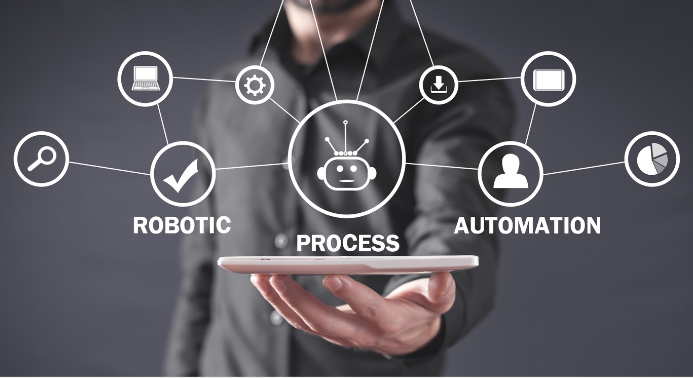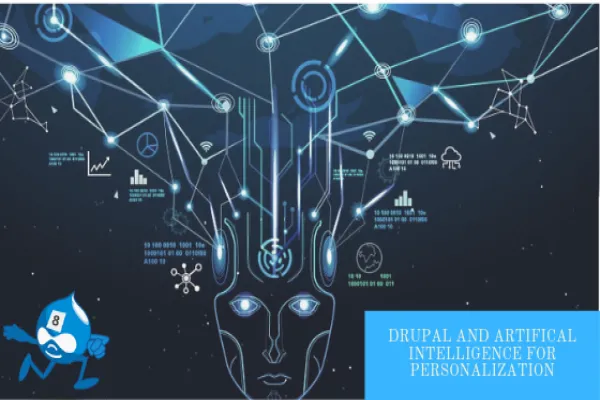In the present times when customer interaction has become the cornerstone of brand strategy, the relationship between AI and customer experience is also evolving. Businesses are now presented with unprecedented opportunities regarding communication with their customers, which enables them to refine engagement. With technology disruption in its prime, artificial intelligence (AI) emerges as a key tool for businesses looking to deliver impactful, personalized, and efficient customer experiences.
For C-suite executives, understanding how AI customer experience innovations can drive growth and streamline operations is essential for staying ahead. In this blog, we’ll explore how AI is transforming customer interactions and helping businesses deliver seamless and personalized customer journeys.
What Is AI in Customer Experience?

Before understanding about the applications, businesses must understand what AI and customer experience entail. AI in customer experience refers to using artificial intelligence tools, technologies, and languages that can enhance how a brand communicates with its customers. It is the automation of interaction with customers across multiple touchpoints and channels, thus creating a cohesive brand communication strategy. AI can automate tasks and facilitate personalized recommendations, while also analyzing customer data in real-time. AI in customer experience can also predict consumer behaviour, hence helping brands plan their strategy a step ahead.
From AI-powered chatbots that deliver instant customer support to machine learning algorithms that personalize marketing messages, AI is reshaping how businesses approach every step of the customer journey.
The Growing Importance of AI in Customer Experience
As customer expectations continue to rise, businesses must find ways to provide faster, more personalized, and efficient services. AI enables businesses to meet these growing demands in a scalable manner, making it a key asset in delivering superior customer experiences. Below are some reasons why AI and customer experience are becoming increasingly intertwined:
1. Scalability and Efficiency
AI technologies enable businesses to scale customer service and marketing operations without compromising on quality. AI-driven solutions such as chatbots, virtual assistants, and automated response systems can handle thousands of customer interactions simultaneously, offering instant responses and reducing wait times. This leads to a more streamlined AI customer experience that enhances both customer satisfaction and business efficiency.
2. Personalization at Scale
Customers now expect brands to deliver personalized experiences, tailoring choices for the individual needs. AI allows businesses to sift through enormous customer data, and craft a hyper-personalized journey for every single customer at scale. Whether it is through personalized product suggestions and recommendations, to targeted marketing campaigns, or dynamic content based on customer behavior, AI customer experience enables brands to engage with their customers at a much deeper and meaningful level.
3. Data-Driven Decision Making
One of the most significant advantages of AI is its ability to process and analyze large datasets quickly and accurately. Businesses can leverage AI to gain insights into customer preferences, behaviors, and trends. This data-driven approach allows companies to make informed decisions and adjust their strategies in real time to optimize the customer experience. By continuously learning from customer interactions, AI enables businesses to refine their customer experience strategies.
Key Applications of AI in Customer Experience
Understanding the key applications of AI is critical to leveraging its full potential in customer experience. Here are some of the most impactful ways AI customer experience is being implemented in businesses today:
1. AI-Powered Chatbots and Virtual Assistants
AI chatbots have become one of the most common tools for enhancing AI and customer experience. These virtual assistants are designed to handle customer inquiries, provide support, and even assist in completing transactions—all without human intervention. By leveraging natural language processing (NLP) and machine learning algorithms, AI chatbots can understand and respond to complex queries, offering a seamless customer support experience.
2. Predictive Analytics and Customer Insights
AI’s ability to analyze customer data extends far beyond historical data analysis. Through predictive analytics, businesses can forecast customer needs and behaviors, allowing them to proactively address potential issues or offer personalized recommendations. This type of AI-driven insight enables companies to anticipate customer needs and tailor their interactions, creating a more engaging and responsive AI customer experience.
3. Personalized Marketing and Customer Journeys
Personalization is at the heart of AI and customer experience strategies. AI enables businesses to deliver highly personalized marketing campaigns that resonate with individual customers. From product recommendations to personalized email content, AI helps craft customer journeys that are unique to each user. This level of personalization improves customer engagement, drives conversions, and enhances brand loyalty.
4. AI-Driven Customer Support Automation
In addition to chatbots, AI is also being used to automate customer support tasks such as handling routine inquiries, processing returns, and managing FAQs. Through AI, businesses can create self-service portals that empower customers to resolve issues independently, reducing the need for human intervention. This not only saves time but also improves the overall AI customer experience by providing fast and accurate solutions.
How AI Improves the Customer Journey

AI doesn't just impact isolated customer interactions—it transforms the entire customer journey. By automating and personalizing interactions across multiple touchpoints, AI allows businesses to create a unified, consistent experience that evolves with the customer’s needs.
1. Seamless Omnichannel Experiences
AI enables businesses to provide seamless experiences across various channels, whether it’s online, in-store, or through mobile apps. By using AI to connect data from different touchpoints, businesses can ensure that customers receive consistent, relevant messaging and support, no matter how they engage with the brand. This omnichannel approach, powered by AI, enhances the overall AI customer experience.
2. Enhanced Decision-Making for Customer Support Teams
AI benefits customers and empowers customer support teams by providing them with actionable insights in real time. AI tools can analyze customer queries, suggest relevant solutions, and predict potential challenges that may arise during the interaction. This allows support teams to make informed decisions quickly, improving the speed and quality of customer interactions.
3. Proactive Customer Engagement
One of the most exciting applications of AI and customer experience is its ability to engage customers proactively. Identifying opportunities and analysing customers are the key aspects of AI. This can help brands remain competitive because they can maintain customer interactions with customers even before they reach out for support. Whether it is about offering solutions to problems or sending a personalized message, proactive engagement can make customers feel valued and heard, thus maintaining empathy.
Challenges of AI in Customer Experience
While the benefits of AI customer experience are clear, it’s also important to address the challenges that come with implementing AI technologies in customer interactions.
1. Data Privacy and Security
As AI relies on vast amounts of data, businesses must be vigilant about data privacy and security. Ensuring compliance with regulations like GDPR and implementing robust data protection measures are critical to maintaining customer trust in an AI-driven environment.
2. Maintaining Human Touch
In spite of the fact that AI can enhance efficiency, it is still essential to create an equilibrium between human interaction and automation. Maintaining a human element in technology can be the key differentiator for businesses. Over-reliance on artificial intelligence can eliminate empathy and human factors. Therefore, it is essential that businesses remain competitive yet not replace human engagement.
3. Complex Integration Processes
Implementing AI technologies can be complex, especially when integrating them into existing systems and workflows. Businesses must be prepared to invest time and resources into ensuring seamless integration, while also training teams to use AI tools effectively.
Valuebound’s Approach to AI-Driven Customer Experience
Valuebound believes in harnessing the power of AI customer experience to deliver more impactful, efficient, and hyper-personalized customer interactions. By leveraging AI-driven tech solutions like personalized marketing, predictive analytics, and chatbots, businesses can elevate their game and stay ahead of this rising tide. We enable our clients take their game to a whole new level and meet the ever-evolving and growing demand of modern customers.
We believe in the transformative potential of AI, not only for improving customer experiences but also for driving business growth. Our team of experts works closely with businesses to design and implement AI strategies that align with their goals and deliver measurable results.
Ready to unlock the full potential of AI in your customer interactions? Let Valuebound guide your AI-driven transformation. Connect with us now!
FAQs
1. How does AI enhance customer experience?
AI enhances customer experience by automating interactions, personalizing journeys, and providing real-time insights to improve engagement and satisfaction.
2. What are the common applications of AI in customer experience?
Common applications include AI-powered chatbots, predictive analytics, personalized marketing campaigns, and automated customer support systems.
3. What challenges should businesses consider when implementing AI in customer experience?
Key challenges include data privacy concerns, maintaining the human touch in interactions, and ensuring seamless integration with existing systems.
4. How does AI-driven personalization benefit customers?
AI-driven personalization ensures that customers receive tailored recommendations and messaging based on their preferences and behaviors, improving engagement and loyalty.





